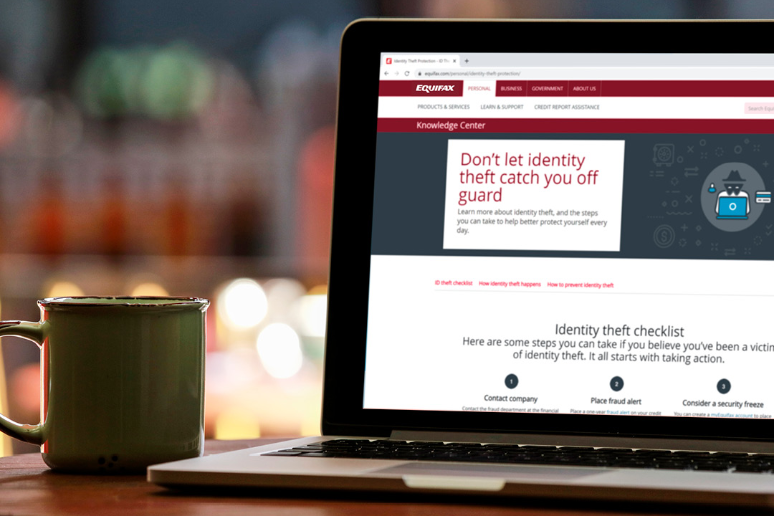In July 2019, Equifax agreed to settle the class action lawsuit for the 2017 data breach with a settlement ranging from $575 million to $700 million. News of the settlement was picked up in media; people might be eligible for 10 years of free credit reporting or $125 cash payout. Given the scale of the data breach—147 million people— many people were encountering a class action settlement for the first time and many signed up for the settlement.
However, a week after the settlement was announced, the Federal Trade Commission began urging people to consider taking the free credit reporting because “because of high interest in the alternative cash payment under the settlement, consumers who choose this option might end up getting far less than $125.” In September, people received emails saying that they needed to provide additional information to pursue a claim.
For people new to class action lawsuits, here’s some basic information.
How does a class action lawsuit differ from a regular lawsuit?
Class action lawsuits “are when a group of people that have been affected by somebody’s conduct,” explains Carl Malmstrom, an associate at Wolf Haldenstein Adler Freeman & Herz LLP, “where the conduct impacts so many people that it’s not practical for everyone who has been affected to sue.” These lawsuits have “class representatives” often one or two people who sue on behalf of the entire class. The number varies depending on the case, but 40 is generally the minimum. Classes can go up to the thousands or even millions, like with the Equifax data breach case.
Class action lawsuits can cover a wide breadth of topics from business practices, price fixing, even human rights, Malmstrom says. However, a class action lawsuit must be certified by a judge before it is an official class action. What qualifies for a class action lawsuit differs at state and federal levels.
Class action law firm Lieff Cabraser Heimann & Bernstein, LLP explains that two general criteria (though more may be needed depending on the jurisdiction) are needed: “1) the issues in dispute are common to all members of the class, and 2) the persons affected are so numerous as to make it impracticable to bring them all before the court.”
However, cases take a lot of time and money to settle. Some cases can be as quick as 18 months while others can go on for years, and even decades. Law firms have to spend a lot of time and money to build a class action lawsuit.
Why are class action lawsuits important?
Class actions serve many important functions for society at large. “Class action lawsuits are designed to advance several important public policy goals,” explains the blog at Lieff Cabraser Heimann & Bernstein. One person bringing a claim may not encourage a corporation or other entity from fixing their actions but a large claim may cause them to stop their actions. Moreover, “the best way to make sure that the things they do get addressed and held to account is to sue on behalf of everyone affected,” Malmstrom notes.
So what happened with Equifax data breach settlement?
Corporations and other entities have an incentive to settle, Malmstrom explains. In Equifax’s case, they decided on the aforementioned settlement.
With settlements, typically there is a pool of money set aside for class members that is split between the people who claim it. But percentage of people that claim their settlement which is often low, Malmstrom says, and is a factor in determining the settlement size.
Since the Equifax data breach impacted such a large number of people, there were different pools for class members depending on how they were impacted by the data breach. For people with credit monitoring services who were generally impacted by the breach, they are drawing from a pool of $31 million as explained by Robert Schoshinski, assistant director of Division of Privacy and Identity Protection of the Federal Trade Commission. If more than 248,000 people signed up for the cash settlement, they would receive less than the reported $125.
The rest of the settlement goes to several areas: a separate payout for people who specifically suffered thousands of dollars from identity theft or other issues from the data breach, credit monitoring services, identity restoration services, civil penalties, and legal fees.
How do I find out if I’m a class member of a class action lawsuit?
When a class action settles, notice is supposed to be sent out through mailings, publications, press releases, and other methods. However, many people may not find out they are part of a class action lawsuit. One strategy is to check TopClassActions periodically to see if they may be eligible for class action claims, recommends Malmstrom.
However, people may have the opportunity to object to a settlement. If a person thinks that the settlement is unfair or bad, they can object by writing a letter or attending the final settlement, under a set period of time, explains Malmstrom. If enough people object, a judge could potentially order that the parties develop a better settlement. In November 2019, there’s a growing group of people who are registering their disapproval of the Equifax settlement which may impact the case.
When should I consider finding a class action attorney?
People may want to consider finding an attorney for something as large as a data breach when you find out you have been impacted. “For other types of cases, such as if you read about a product that is mislabeled or deceptively marketed and you know you bought it because of that deception, you should talk to a class action lawyer,” Malmstrom notes. However, “it can take weeks or months for larger cases to get consolidated, and so firms are always happy to talk to someone who is willing to step up and represent a class,” he explains. Class action law firms also seek out class representatives as well.
 By Elisa Shoenberger,
By Elisa Shoenberger, 

